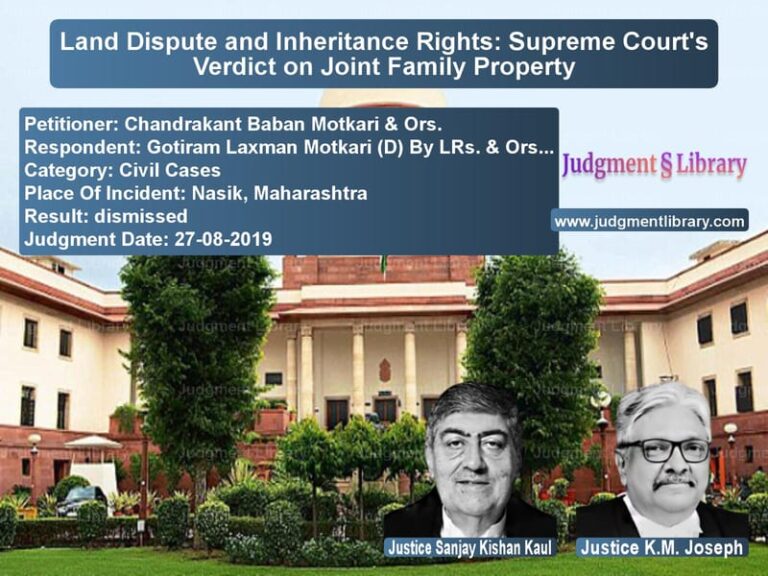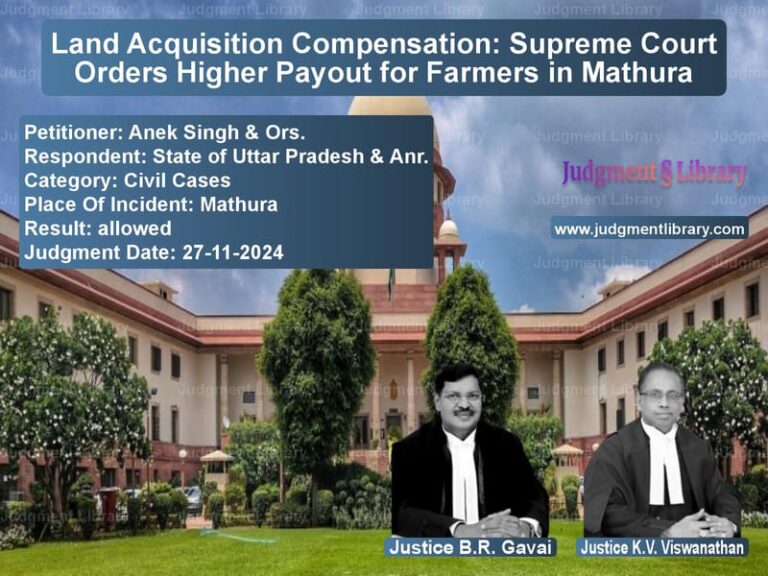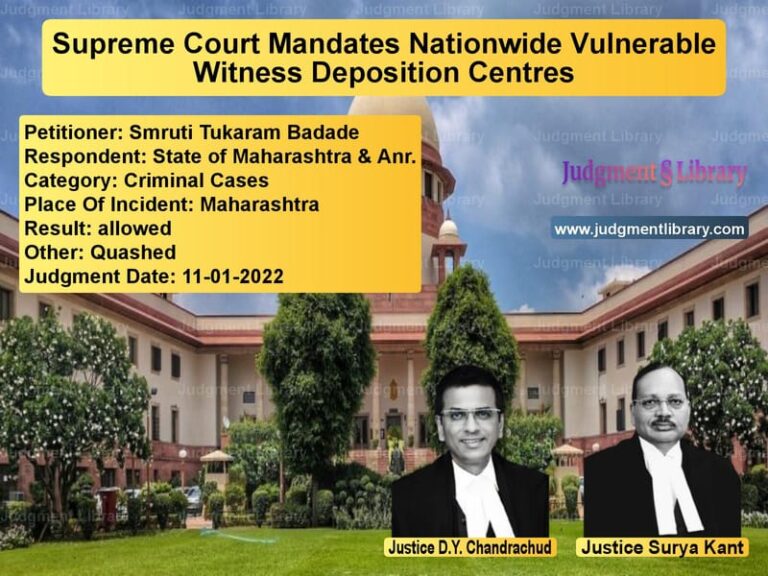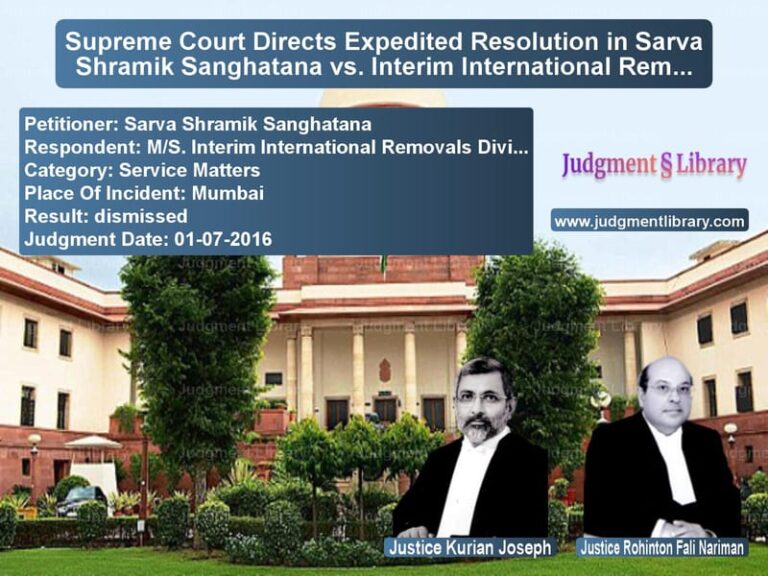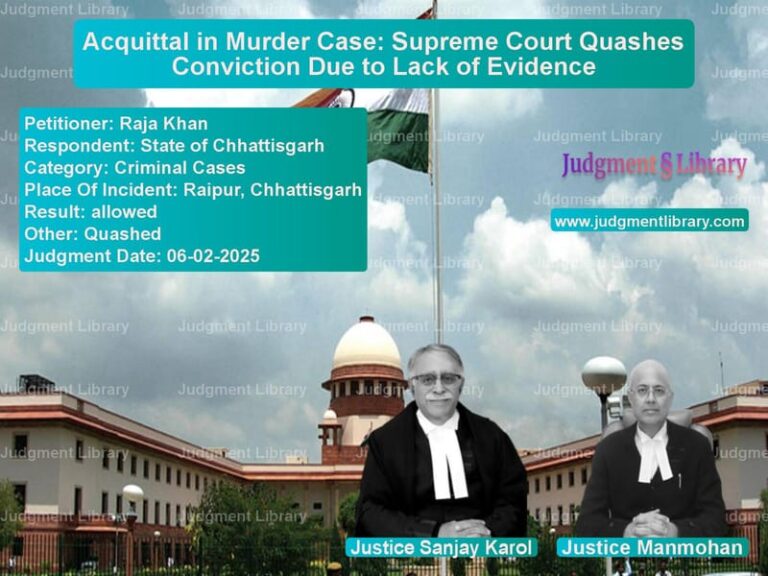Impact of the 97th Constitutional Amendment on Cooperative Societies: Supreme Court’s Landmark Ruling
The case of Union of India vs. Rajendra N Shah & Anr. is a landmark judgment concerning the validity of the Constitution (Ninety Seventh Amendment) Act, 2011. The amendment introduced Part IXB in the Indian Constitution, focusing on cooperative societies. The core issue before the Supreme Court was whether the amendment violated federal principles by encroaching upon the states’ legislative powers over cooperative societies.
Background of the Case
Cooperative societies play a crucial role in India’s rural and semi-urban economies. Recognizing their importance, the Parliament passed the 97th Constitutional Amendment in 2011 to enhance transparency, efficiency, and democratic control in their governance. However, the amendment faced legal scrutiny for allegedly interfering with state jurisdiction.
The Gujarat High Court struck down the amendment’s applicability to state cooperative societies, ruling that it required ratification by at least half of the state legislatures as per Article 368(2) of the Constitution. The Union of India appealed the decision before the Supreme Court.
Arguments by the Petitioner (Union of India)
The Union of India contended:
- The amendment was necessary to introduce a uniform framework for cooperative societies across India.
- Transparency and accountability in cooperative societies were in the national interest.
- The amendment aligned with the Directive Principles of State Policy, promoting economic democracy.
- Since the amendment did not alter state powers directly, ratification by state legislatures was unnecessary.
Arguments by the Respondents
The respondents, including Rajendra N Shah, argued:
- Cooperative societies fall under the State List (List II, Entry 32) of the Constitution, making them a state subject.
- The amendment altered the legal framework of state cooperative societies, thus requiring state ratification.
- The Parliament had exceeded its legislative competence by unilaterally amending provisions related to cooperatives.
- The amendment diluted the autonomy of state governments in governing cooperative societies.
Supreme Court’s Observations
The Supreme Court, in its detailed judgment, analyzed:
- Whether the amendment overstepped constitutional limits by affecting state autonomy.
- The necessity of state ratification under Article 368(2) for amendments impacting state subjects.
- Whether the amendment was justifiable under the Directive Principles of State Policy.
The Court noted:
“The Constitution (Ninety Seventh Amendment) Act, 2011, so far as it relates to cooperative societies operating within a state, requires ratification under Article 368(2) as it alters the legislative domain of states. In the absence of such ratification, the amendment is unconstitutional to that extent.”
Final Judgment
The Supreme Court upheld the Gujarat High Court’s ruling, striking down the amendment concerning state cooperative societies. However, it allowed the amendment’s applicability to multi-state cooperative societies, which fall under the Union List.
Implications of the Judgment
The ruling has far-reaching consequences:
- Federalism Strengthened: The verdict reinforces the autonomy of states in governing cooperative societies.
- Parliamentary Limitations: The judgment underscores that constitutional amendments affecting state subjects require state ratification.
- Regulatory Framework Adjustments: The ruling prompts a review of laws governing cooperative societies, ensuring compliance with constitutional mandates.
Conclusion
The Supreme Court’s decision in Union of India vs. Rajendra N Shah & Anr. is a landmark ruling reaffirming federal principles in India’s constitutional framework. By striking down the amendment’s applicability to state cooperative societies, the Court has upheld the legislative autonomy of states while preserving the Union’s role in multi-state cooperatives. The judgment serves as a crucial precedent in delineating the powers of the Centre and states, ensuring cooperative federalism in India.
Petitioner Name: Union of India.Respondent Name: Rajendra N Shah & Anr..Judgment By: Justice R.F. Nariman.Place Of Incident: India.Judgment Date: 20-07-2021.
Don’t miss out on the full details! Download the complete judgment in PDF format below and gain valuable insights instantly!
Download Judgment: union-of-india-vs-rajendra-n-shah-&-an-supreme-court-of-india-judgment-dated-20-07-2021.pdf
Directly Download Judgment: Directly download this Judgment
See all petitions in Fundamental Rights
See all petitions in Constitution Interpretation
See all petitions in Legislative Powers
See all petitions in Judgment by Rohinton Fali Nariman
See all petitions in partially allowed
See all petitions in Modified
See all petitions in supreme court of India judgments July 2021
See all petitions in 2021 judgments
See all posts in Constitutional Cases Category
See all allowed petitions in Constitutional Cases Category
See all Dismissed petitions in Constitutional Cases Category
See all partially allowed petitions in Constitutional Cases Category


